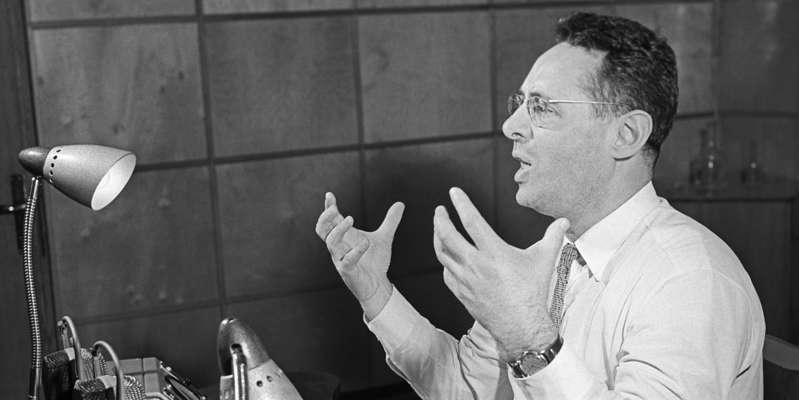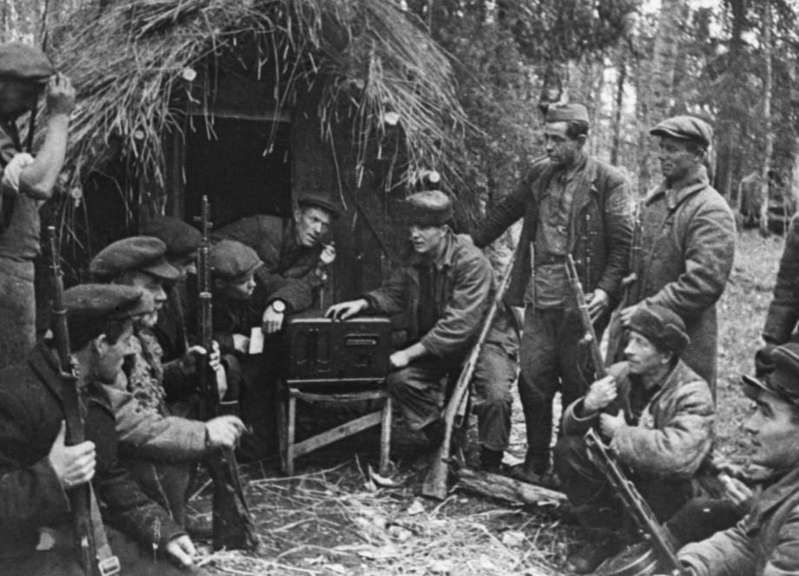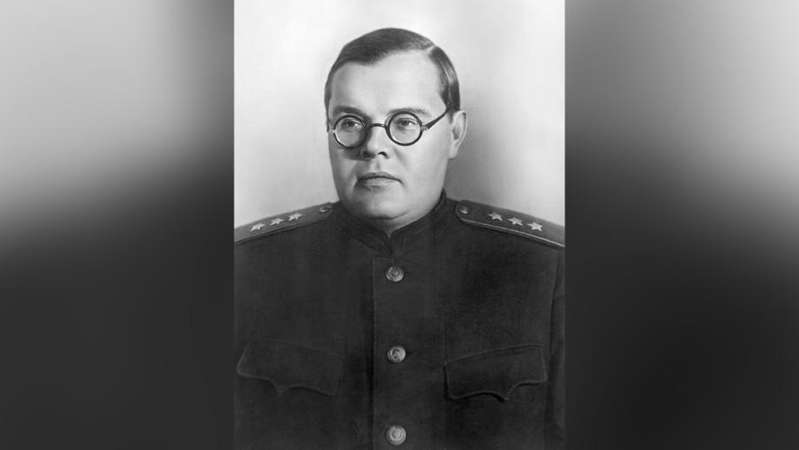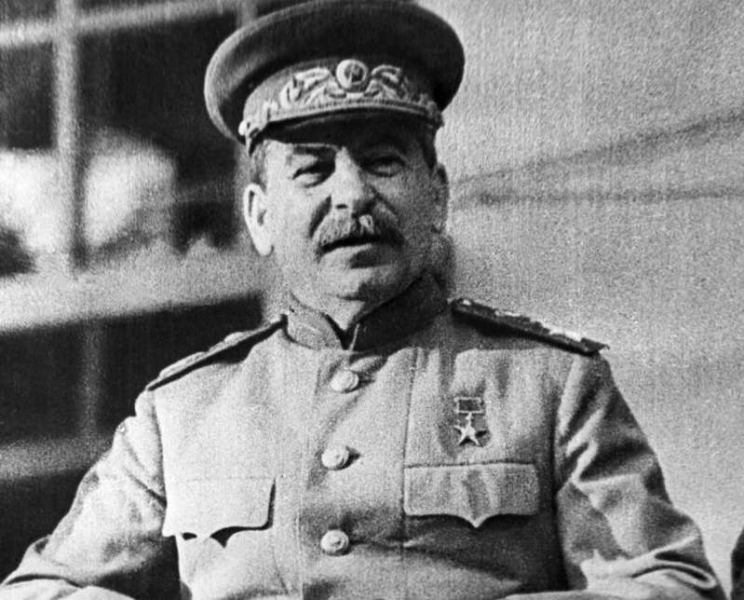
“Moscow Speaks”: where did Levitan actually read the reports from and why did Stalin personally rule their texts?
“From the Soviet Information Bureau” – this phrase, pronounced in the voice of Yuri Levitan, is familiar to everyone both in our country and throughout the entire space of the former USSR. Still alive are those who heard what it was like: every day throughout the Great Patriotic War, tens of millions of people froze at the radio at these words. And in the memory of the next generations, they are imprinted as if we also lived it.
Exactly 80 years ago, on June 24, 1941, on the third day of the Great Patriotic War, the Soviet Information Bureau (Sovinformburo) was created – a unique organ of information and propaganda, which, without exaggeration, became one of the most powerful weapons in this war.
The main information department was created under the Council of People's Commissars. Throughout the war, it was engaged in the compilation of reports for radio, newspapers and magazines about the situation at the fronts, about the work of the rear and about the partisan movement. But his main task was to instill confidence that the enemy would inevitably be defeated.
In the very first days of the war, the authorities made sure that all information about the course of the war came only from a single center. First of all, all radio receivers and radio transmitters were collected from the population: they were required to hand over within five days. The resolution of the Council of People's Commissars stated that they “can be used by enemy elements to harm Soviet power.”
Therefore, the central wire radio broadcasting became a practically uncontested source of information, which was available to the civilian population even where the central press did not reach. And this measure has proven to be effective.
How the Sovinformburo worked
The Sovinformburo was at first an organization that prepared military reports based on the materials of the General Staff and a special group that worked in the apparatus of the Propaganda and Agitation Directorate of the Central Committee of the All-Union Communist Party (Bolsheviks), and was engaged in collecting additional information for the main report of the General Staff. Then the agency's activities expanded significantly.

“Moscow Speaks”: where did Levitan actually read the reports from and why did Stalin personally rule their texts?
The scale of the work of the Sovinformburo can be judged by its structure. It included a military department, divisions of translation, propaganda and counter-propaganda, a department of international affairs, a literary section and other departments. Initially, the number of employees was about 80 people, but later dozens of war correspondents and writers were added to the staff, who worked at the front and in the rear.
The main task was to strengthen and maintain the fighting spirit of the Soviet people. And therefore, in the messages of the Soviet Information Bureau, stories appeared about the heroes of the front and rear, about successful battles, about overfulfillment of plans by factories and state farms. Correspondents tried to tell about them brightly, interestingly and diversely, so that the dry lines of the reports come to life and turn into stories of the exploits of real people.
Work for foreign media was considered especially responsible. For this, the most experienced people were selected who were familiar with the internal “cuisine” of foreign publications and knew their approaches to the audience, features and genres.
After the outbreak of the war, most foreign correspondents were evacuated along with diplomatic missions. And the few that remained were in Moscow and had no idea what was going on at the front. Foreign media did not have the right to send their employees to the places of hostilities. Therefore, it was the Sovinformburo that was responsible for providing information to foreign broadcasting corporations and radio stations, telegraph agencies, societies of friends of the USSR, newspapers and magazines, as well as separately – embassies and consulates of the USSR abroad.
The agency was headed by the secretary of the Central Committee of the CPSU (b) and the first secretary of the Moscow city party committee, Alexander Shcherbakov, who always put ideological issues in the first place. According to some reports, it was he who came up with the very idea of creating such a body that would wage an ideological war. Shcherbakov considered it to be no less important a guarantee of victory than hostilities on the fronts.

“Moscow Speaks”: where did Levitan actually read the reports from and why did Stalin personally rule their texts?
The Sovinformburo attracted to its activities those who could make the word a real weapon. Outstanding writers, publicists and journalists worked for the agency.
Among them were, for example, Valentin Kataev, Sergey Sergeev-Tsensky, Alexander Fadeev, Konstantin Simonov, Alexey Tolstoy, Konstantin Fedin, Korney Chukovsky, Marietta Shaginyan, Mikhail Sholokhov, Ilya Erenburg and many others. Most of the writers did not sit in the deep rear, but worked on the fronts of the Great Patriotic War. The famous song by Konstantin Simonov about war correspondents, as they say, was written from nature:
“Where we have been
We were not given tanks:
The journalist dies – it doesn't matter.
On the foredish with a dran
And with one revolver
They were the first to break into the cities. “
Many have paid for their reports and essays with their own lives. So, among the writers who died at the front was the co-author of The Twelve Chairs and The Golden Calf, Evgeny Petrov.
Where did Yuri Levitan transmit the reports from?
But the real “voice of Moscow” was, of course, the announcer Yuri Levitan, who read the reports from the front. It is his voice, sounding weighty and solemn, has become a real personification of the strength of the country and the confidence of people in victory. And it was his enemies called him “Stalin's secret weapon.”
For four years of the Great Patriotic War, the legendary announcer read more than 2,000 front-line reports, hundreds of emergency messages, orders of the Supreme Commander-in-Chief and government statements. Less known is the second announcer of the Sovinformburo – Olga Vysotskaya, who read the reports along with Levitan.
Every time before the start of the message, a solemn “Moscow is speaking” sounded, however, the messages were read out at all from the capital of the USSR.
There was no technical possibility for broadcasting from Moscow: the radio towers near Moscow were dismantled, as they were good reference points for German bombers.

“Moscow Speaks”: where did Levitan actually read the reports from and why did Stalin personally rule their texts?
In addition, a real hunt began for Levitan at the end of the summer of 1941: the Nazis really wanted to get rid of the legendary “voice of Moscow”. On this score, there was a personal order from Goebbels – to destroy! Therefore, when the NKVD officers discovered a radio beacon on the roof of the Radio House, Levitan was taken under the strictest guard, transferred to a reserve studio equipped in the Central Telegraph building, and in the fall of 1941 secretly evacuated to Sverdlovsk (now Yekaterinburg).
The Sverdlovsk studio was located in the basement, and all employees lived in barracks nearby. Announcers Yuri Levitan and Olga Vysotskaya have been broadcasting daily from Sverdlovsk since the fall of 1941. The signal was spread through a whole network of repeaters throughout the country so that the enemies did not track the exact location from which the transmissions were being carried out. In the spring of 1943, the studio was transferred to the city of Kuibyshev (now Samara). Everything happened in the strictest secrecy. Information about the movements of Yuri Levitan and the entire studio was completely declassified only 25 years after the end of the war, by the end of the 60s of the XX century.
Reports from the fronts were broadcast daily from 5 to 6 in the morning. Yuri Levitan or Olga Vysotskaya read them very slowly and solemnly. And the names of the settlements were specially pronounced by the speakers very clearly, practically by letter, making long pauses. This was done so that everyone who manually wrote down the summary in the field had time to do it and did not make mistakes.
The reports read by the announcers were recorded and multiplied in dozens and hundreds of cities and villages on both sides of the front, as well as at the front itself. Information bureau messages were read out in work collectives, they were printed on the front pages of newspapers, they were rewritten by hand for homemade leaflets in order to convey the word of Moscow to the people in the occupied territories. And this is despite the fact that the messenger with such a leaflet could have been shot by the Nazis.
I must say that during the war, the press as an agitation body was assigned a very large role: each division had its own small newspaper, which was made by 3-5 people at most, there were army, front-line newspapers, not to mention the central media. And all of them printed the summary of the Sovinformburo at the most honorable place, word for word, without shortening or changing the wording.
This allowed the ruling elite, responsible for ideology, to strictly define the information and propaganda dominants and ensure the uniformity of the presentation of information throughout the country during all five years of the Great Patriotic War.
How much truth was in the reports and what kind of editor was Stalin
A separate issue that still causes a lot of controversy is the reliability of the information that was reported in the reports. More precisely, until a certain moment, this information did not at all reflect the true state of affairs at the fronts. They were more like a simulacrum, an informational copy of reality, which distorted it beyond recognition.
Historians are still debating the extent to which this was permissible. However, the fact that the information was significantly corrected in the direction of optimism and confidence in an imminent victory allowed millions of people to withstand the first, most terrible year of the war, when the enemy swiftly took city after city, and our troops retreated, losing tens and hundreds of thousands on the battlefields. killed.
And then, relying on the life-affirming optimism of the reports, it was possible to somehow survive and not panic, even if the rumors brought directly opposite information to the reports. In fairness, it should be said that German propaganda did not hesitate in its leaflets to tell in the occupied territories that the entire territory of the USSR had long been “liberated” by German troops.

“Moscow Speaks”: where did Levitan actually read the reports from and why did Stalin personally rule their texts?
It seems surprising, but many reports of the Sovinformburo were ruled personally by Joseph Stalin. He attached great importance to ideological propaganda and made sure that his canonical formulations reached every person in the USSR unchanged, so he spared no time looking through and correcting the reports. In the memoirs of many close associates of the leader, it is described how Marshals Zhukov and Vasilevsky waited for a long time in the reception room until the Supreme Commander-in-Chief finished editing. The executive secretary of the Soviet Information Bureau, Vladimir Kruzhkov, who often sat in the same reception room, waiting for the corrected texts, also spoke about this.
In Stalin's collection there are typed summaries written over the lines and in the margins by Stalin's hand. The leader often overestimated the data on German losses, and underestimated the data on ours many times over. Vladimir Kruzhkov wrote in his memoirs that Stalin did not spare the Germans. “If according to the reports we count all the aircraft, tanks, ships, weapons and manpower lost by the enemy, then neither in Germany, nor in the Europe it has captured, there would be no people or equipment left by the middle of the war.”
Such an information and propaganda policy may seem wild and unjustified, but there was no time and no one to compare the reports and calculate the numbers. They were sent to the archive and were classified for many years. And the epic, with broad and generous strokes, the drawn image of the war continued and bore fruit, supporting the faith in victory in the citizens of a huge country. Stalin also liked to strengthen the emotional side of the messages of the Soviet Information Bureau, adding such clichés as “blood for blood, death for death” and “the enemy will be defeated, victory will be ours.”
Sometimes the Supreme Commander-in-Chief would suddenly undertake to shorten the texts. So, the authors of a scientific study on the activities of the Soviet Information Bureau Olesya Balandina and Alexander Davydov note that Stalin did not like a long list of trophies taken in battles. And sometimes he suddenly downplayed the achievements of the Soviet troops! This happened if one of our commanders fell into disgrace. In this case, the data of the reports acted as a means of censure: Stalin deprived him of some of his military merit on paper.
However, since 1943, the contradiction between reality and the messages of the Soviet Information Bureau has practically disappeared. The Soviet troops advanced successfully, and the reports reflected a very real picture of the victorious movement of our army.
The Sovinformburo owed much of its enormous influence to Alexander Shcherbakov, who headed the agency. He was Stalin's favorite, and his authority was very high. Marshal Vasilevsky wrote, in particular: “Materials agreed with Alexander Sergeevich or endorsed by him, Stalin signed without delay.” In early 1945, Shcherbakov's deputy, Solomon Lozovsky, realizing that after the war the agency needed to be transformed into a new body with new functions, he even tried to turn the Soviet Information Bureau into the Ministry of Information. However, this project was not destined to come true: on the night of May 9-10, 1945, Shcherbakov suddenly died from a massive heart attack. The long-awaited news of victory shocked him so much that he did not survive the whole storm of emotions.
After that, the unprecedented influence of the Soviet Information Bureau began to decline. Solomon Lozovsky was soon removed from office, and in 1952 he was shot in the fabricated case of the Jewish Anti-Fascist Committee. The center of outreach activities gradually moved to the Telegraph Agency of the Soviet Union (TASS). And on the basis of the Sovinformburo, over time, the Novosti Press Agency (APN) was formed.

